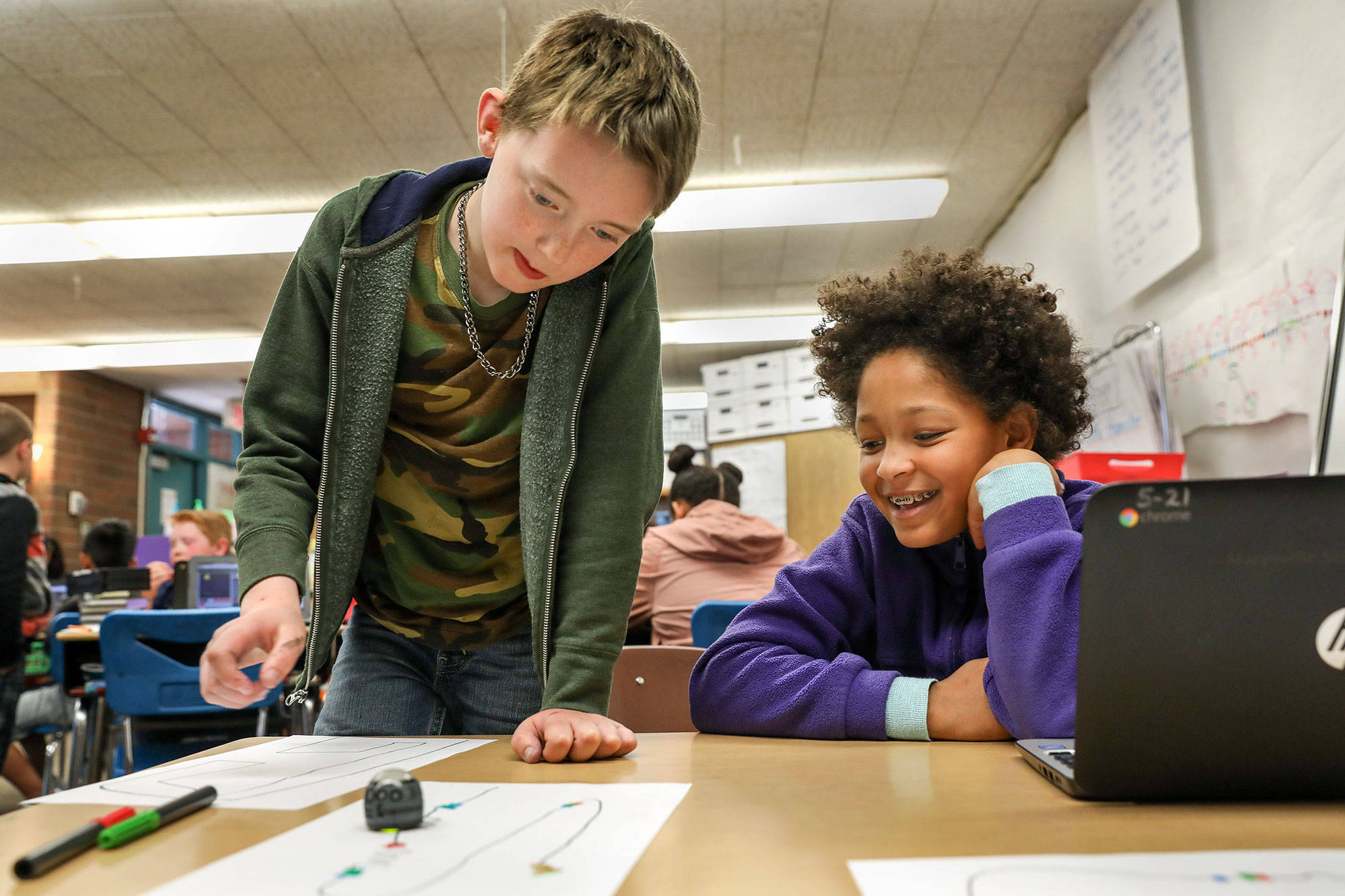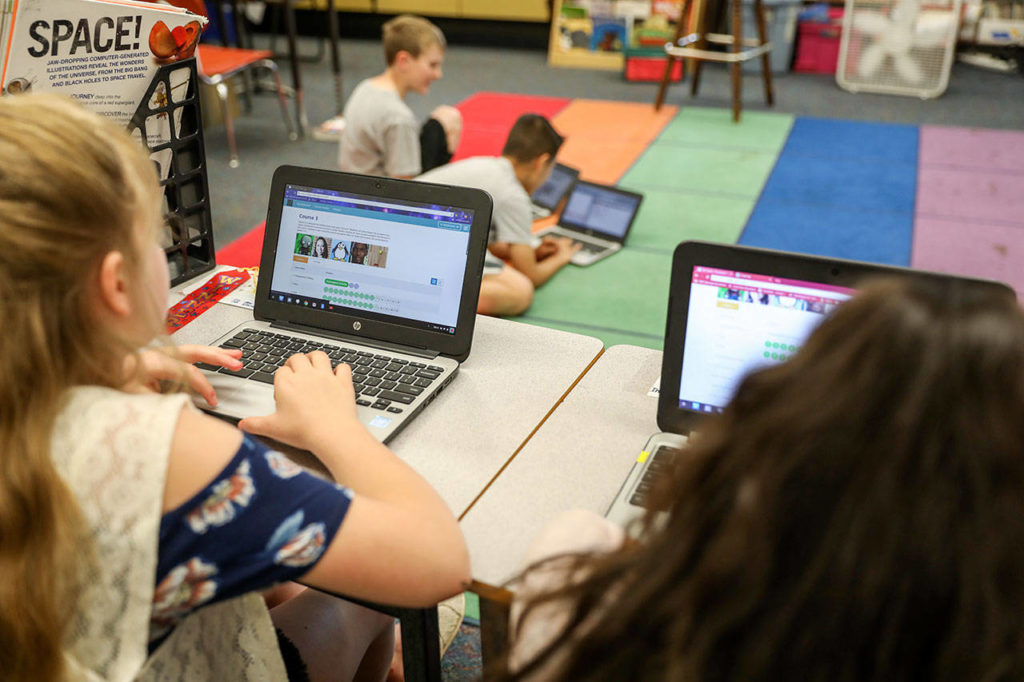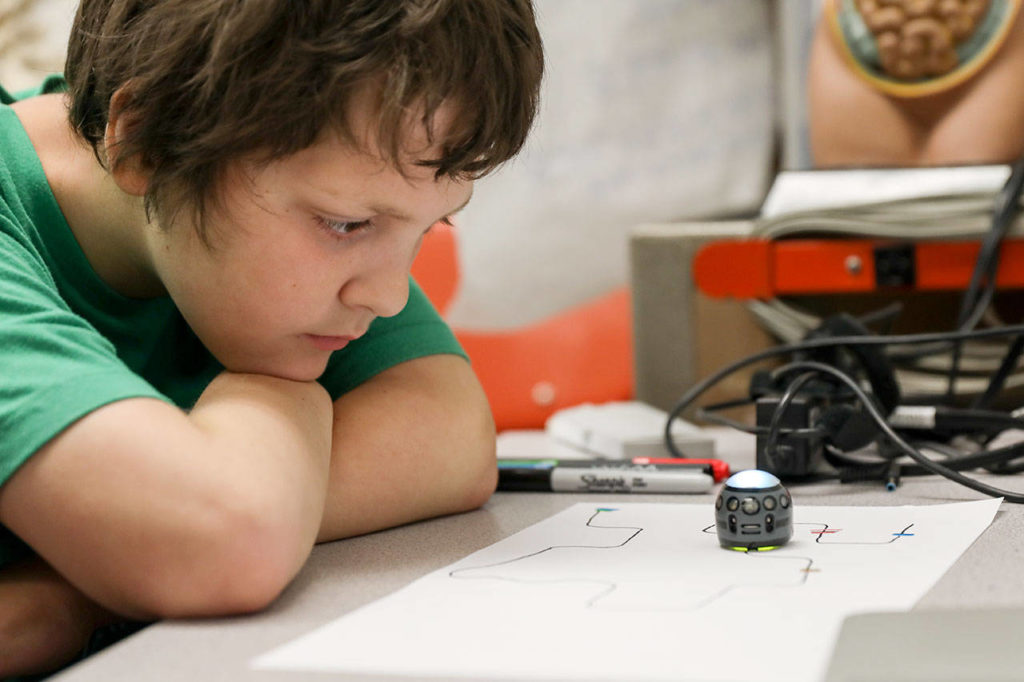MARYSVILLE — The Marysville School District’s 1:1 Chromebook initiative, which brought simple laptops into the schools, is pushing teachers to try new methods.
A little over a year and half after the 2014 tech levy passed, Chromebooks were in the hands of every student in sixth through 12th grades. Soon after, schools had enough for every student in grades 3, 4 and 5 to use in the classroom. For the youngest grade levels, the district settled on one Chromebook for every three students.
“A mind shift is occurring in the education field, now that schools can afford to provide devices to every student,” said Scott Beebe, the district’s chief technology officer.
At first, teachers fretted over their role in the classroom now that students have instant access to answers, Beebe said. Teachers are crucial. Information has little value without context, he said.
“We tend to teach the way we were taught, but the Chromebooks forced teachers to think about other approaches,” Beebe said.
For Marysville Middle School teacher Chris Bickford, the Chromebooks allow him to flip his classroom. Rather than spending class time lecturing in front of his sixth-grade math classes, students watch videos Bickford created for each lesson and posted to YouTube.
The videos allow students to watch the lesson at their own pace, pausing, rewinding or rewatching. It gives students the flexibility to work ahead if they want.
Bickford now uses class time to answer questions and check students’ work on practice problems.
“Many of the kids don’t have help at home,” he said.
And the flipped classroom model also gives him more flexibility.
“It frees up my time to talk to the kids and get to know them,” Bickford said. “Building that relationship is so important in getting kids engaged.”
At Pinewood Elementary, coding specialist Jason Ballew uses the Chromebooks to tailor curricula to match what students are studying in other subjects. Ballew moves between classes at the school, teaching computer science.
When one class was learning about weather, he scratched a planned lesson, instead choosing to explore climate patterns.
Throughout the year, the district hosts trainings for teachers to learn about ways to use the new technology.
Just as with adults, Chromebooks and other devices can be big distractions for kids. But getting students to focus has always been difficult, Bickford said.
The district uses a program called GoGuardian, which can give teachers control over the Chromebooks or let them monitor activity.
To assure Chromebooks are kept in good condition, families are offered insurance that the district has self-funded. Beebe said a majority of families have opted into it. The district gives a discount to families who qualify for free or reduced-price lunch.
The technology levy was once again approved by voters this year. It will allow the district to buy new and updated devices and more accompanying technology, according to Beebe.
Lizz Giordano: 425-374-4165; egiordano@heraldnet.com; Twitter: @lizzgior.
Talk to us
> Give us your news tips.
> Send us a letter to the editor.
> More Herald contact information.



























